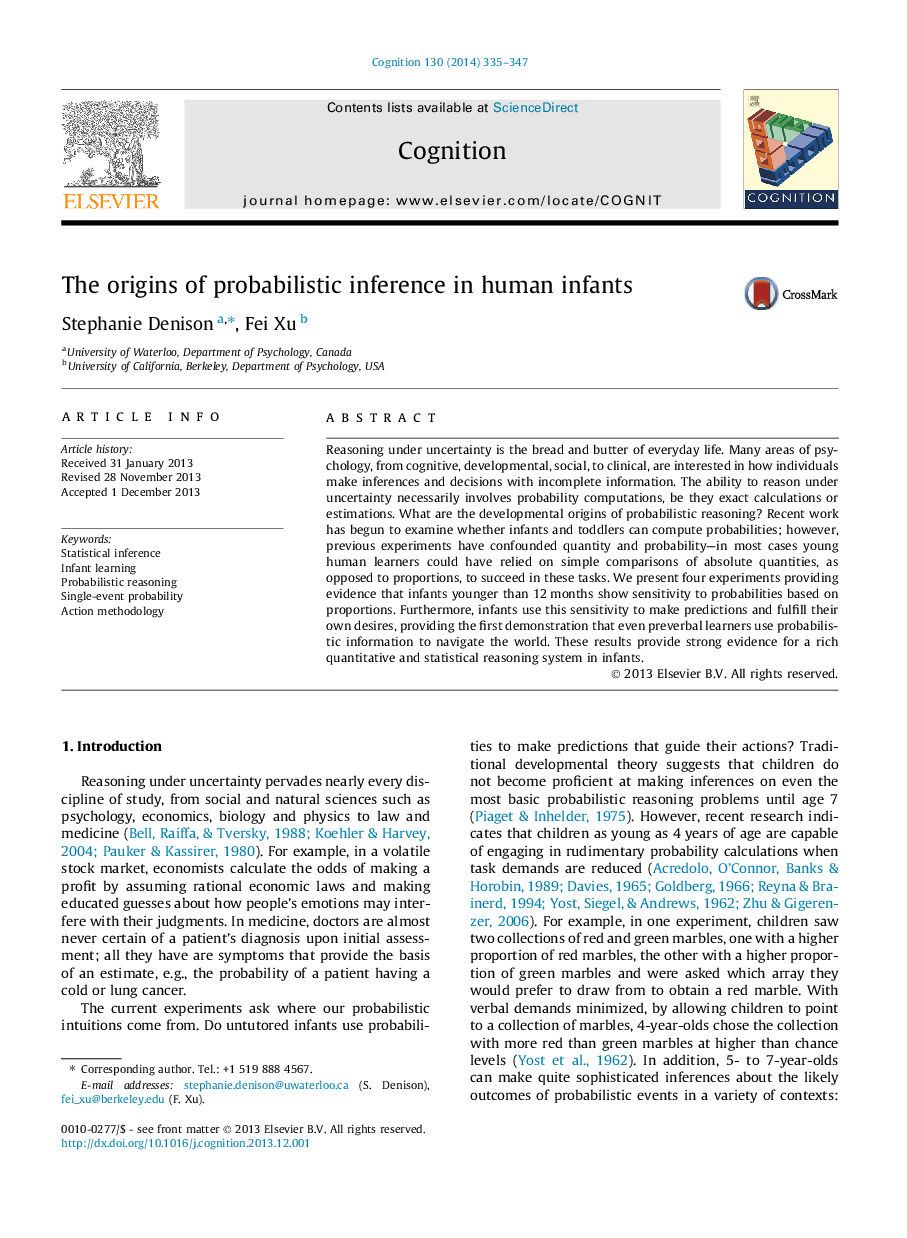| کد مقاله | کد نشریه | سال انتشار | مقاله انگلیسی | نسخه تمام متن |
|---|---|---|---|---|
| 7287688 | 1474134 | 2014 | 13 صفحه PDF | دانلود رایگان |
عنوان انگلیسی مقاله ISI
The origins of probabilistic inference in human infants
ترجمه فارسی عنوان
منشأ احتمالاتی در نوزادان انسانی
دانلود مقاله + سفارش ترجمه
دانلود مقاله ISI انگلیسی
رایگان برای ایرانیان
کلمات کلیدی
استنتاج آماری، یادگیری نوزادان، استدلال احتمالاتی، احتمال وقوع یک رویداد، روش کار،
موضوعات مرتبط
علوم زیستی و بیوفناوری
علم عصب شناسی
علوم اعصاب شناختی
چکیده انگلیسی
Reasoning under uncertainty is the bread and butter of everyday life. Many areas of psychology, from cognitive, developmental, social, to clinical, are interested in how individuals make inferences and decisions with incomplete information. The ability to reason under uncertainty necessarily involves probability computations, be they exact calculations or estimations. What are the developmental origins of probabilistic reasoning? Recent work has begun to examine whether infants and toddlers can compute probabilities; however, previous experiments have confounded quantity and probability-in most cases young human learners could have relied on simple comparisons of absolute quantities, as opposed to proportions, to succeed in these tasks. We present four experiments providing evidence that infants younger than 12Â months show sensitivity to probabilities based on proportions. Furthermore, infants use this sensitivity to make predictions and fulfill their own desires, providing the first demonstration that even preverbal learners use probabilistic information to navigate the world. These results provide strong evidence for a rich quantitative and statistical reasoning system in infants.
ناشر
Database: Elsevier - ScienceDirect (ساینس دایرکت)
Journal: Cognition - Volume 130, Issue 3, March 2014, Pages 335-347
Journal: Cognition - Volume 130, Issue 3, March 2014, Pages 335-347
نویسندگان
Stephanie Denison, Fei Xu,
